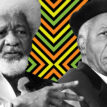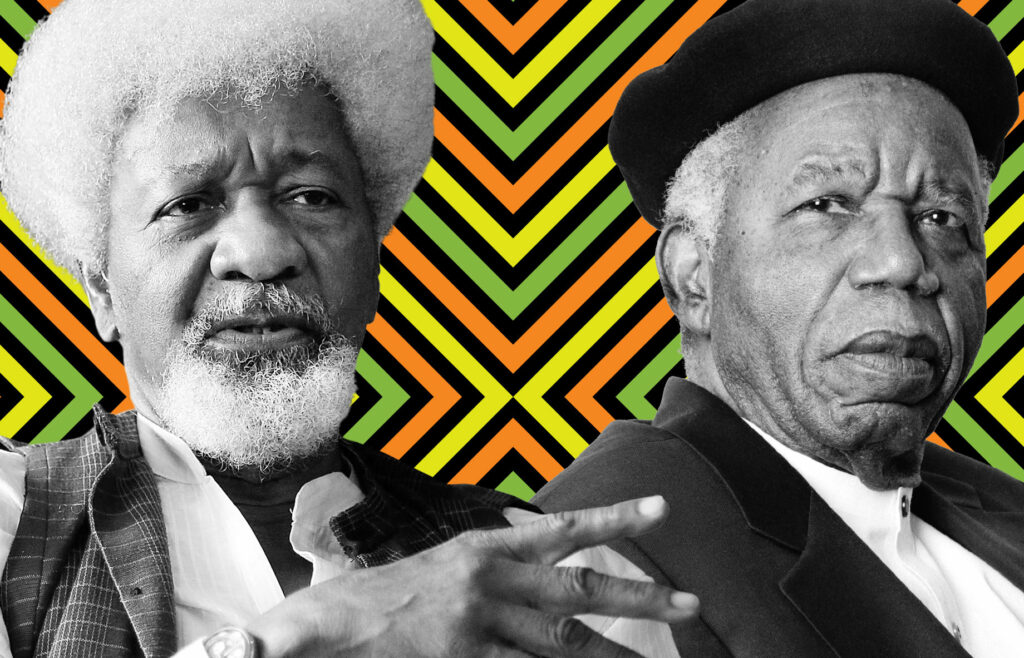

By Prisca Sam-Duru
With the removal of history as a subject from the Nigerian school curriculum, one can’t help but commend individuals in the creative industry who have through their works, helped in the preservation of events that have so far shaped the existence of the most populous black nation.
It’s been six turbulent decades for a country with all the endowments needed to transform into a global economic powerhouse, but which unfortunately has chosen rather remain worse than an invalid. The problems of Nigeria have been largely attributed to bad governance, a dominant theme in the works of artists who have been relentless in the struggle for a better country.
Nigeria’s history cannot be complete without narrating the Nigeria-Biafra war – that unfortunate and avoidable event that almost exterminated the people of Eastern Nigeria. The war broke out barely seven years after Nigeria’s independence. Unfortunately, successive rulers of the country have failed to deal with the very issues that led to the war, leaving the country comatose.
A good number of writers, through fiction and nonfiction works, have documented the events of that civil war, while postulating possible ways to solving the country’s teaming challenges.
READ ALSO: Soyinka queues behind Obasanjo on state of nation
Apart from the current bloodletting in the land as a result of the insurgency and the massive corruption among the political elite, clear evidence that Nigeria is a failed state is the agitation for self-determination springing up from different quarters. It’s on record that the demand for a sovereign state of Biafra led to the full-blown war in 1967. And it is quite ominous that for more than 50 years after, the Biafra agitation for an independent state of Biafra has resurfaced.
Journalist and activist, Chido Onumah’s book titled, “We Are All Biafrans: A participant-observer’s interventions in a country sleepwalking to disaster”, captures the series of agitations in Nigeria indicating a failed State.
In the provocative book of essays, Onumah argues that Nigeria’s problem is rooted in the structure. He maintains his stance for the socio-political restructuring of the country and contends that “Nigeria needs to engage episodic convulsions that threaten its very foundation including Biafra, June 12, Boko Haram, the National Question and citizenship rights…”
In the 214-page book published in 2016 by Parresia Publishers Ltd, Lagos, Onumah whose other works, “Nigeria is Negotiable” and “Time to Reclaim Nigeria”, all speak to issues concerning the country, tackles the selfish and corrupt ruling elite. These wolves in sheep clothing according to the author, including civilian and military as well as their allies, and those he terms scoundrels posing as statesmen. He raises fundamental questions: What is Nigeria and who is a Nigerian? If Nigeria is a federal republic, what constitutes or should constitute the federating units?” He posits that the different manifestations of Biafra springing up from different quarters, is a metaphor so long as we agitate for a better Nigeria.
Giant of African Literature, Professor Chinua Achebe gave Nigeria and of course, the world a parting gift, “There Was A Country” in 2012. The book subtitled Achebe’s personal history of Biafra which documents the civil war between 1967 and 1970 has been largely considered as one of the defining works of modern African non-fiction. A fusion of history and memoir, Achebe’s book exposes the Biafra tragedy and the effects which still resonate till date. For the fact that all Nigerian rulers failed to even attempt solving the challenges plaguing the country and give the people a befitting nation, in solidarity with the hapless masses, Achebe rejected national honours awarded to him before he passed away in 2013.
Former General Manager, Radio Nigeria Heart Land FM Owerri, James Egbuchulam, in his book of essays titled, “Our Nation Our Hope”, exposes the political life of Nigeria and the unfortunate height of injustice, profligacy, poverty, and social inadequacy in the midst of rich natural and human endowments. The book published in 2010 is a compilation of essays written from 1982. The writer begins with facts on how Nigeria was birthed and how it got her independence in 1960. It examines how both military and civilian rulers failed to develop the country. Other issues regarding education, health, labour, etc., are also captured in the book, exposing how badly these sectors have fared since independence.
Poet and Journalist, Odia Ofeimun, who has always maintained his believe in the country, has through his literary works and dance dramas, portrayed Nigeria as redeemable. Odia strongly believes in the Nigeria project. One of his books, “Taking Nigeria Seriously”, published in 2012 by Hornbill House of the Arts, which is a compilation of public lectures and interventions in national debates, focuses on the need for a national strategy to motivate the much-desired change. It documents discussion on ethnic politics, electoral reforms, corruption, and debt relief, military politics, and education, for the purpose of social transformation. He further asserts that the “Damage wrought by British colonialism in its untidy exit needs to be corrected and overcome so that all Nigerians may become genuinely self-governing and ready to exercise the creativity that is so much part of the national character”.
In 2014, Joe Dudun, an active participant in the evolution of Nigeria’s movie industry, Nollywood, took a step further in his contribution to the development of Nigeria, when he published his collection of poetry titled, “Waiting for Sanity”.
In the 56-page collection of poetry, published by Barracuda Books, Warri, Delta State, the applied creative writing advocate and journalist projects a commitment to a society in need of transformation, which he says is achievable through a focused leadership that ensures a re-awakening of the consciousness of progress.
“The poem is painfully beautiful, Joe, and you really know how to turn a phrase…You brought a tear to my eye with that heart-warming recollection, which made the senseless brutality of the present all the more resonant…”, Myla Barret, Professor of Dramatic Arts, New York State University, wrote in one of the book’s blurbs. As the poem’s record, to say that pain is all Nigerians have known since independence, amounts to an understatement. The poet takes his readers to Itsekiri and Nigerian roots with titles such as ‘Oloibiri’, ‘Ejigbo’, ‘Umuechen’, ‘Ode-Itsekiri’, Opokuma, etc., to further document the travails of the people.
READ ALSO: State of the Nation: Nigeria between ‘divider-in-chief’ and ‘divider-in-law’ — SOYINKA
Also, in his drama, “August Inmates”, which made the longlist of the Nigeria Prize for Literature 2018, Chidubem Iweka, the Igwe of Obosi, Anambra State, also exposes how corruption and bad leadership have been the bane of the 60-year-old country. As a matter of priority importance, the Igwe who is also the author of the well-crafted and moving fiction, “So Bright A Darkness”, proffers a beautiful solution to the end of Nigeria’s bad leadership. If only our politicians have a good reading culture that is at least enough to read ‘August Inmates’ and others, if only they have listening ears, and if only they are sincere, Nigeria would become the giant of Africa indeed.
While people like Nobel Laureate, Professor Wole Soyinka have been consistent in his advocacy for good governance and justice, there are also, a whole lot of compelling fictions dealing with Nigeria’s Independence and the ensuing Nigeria-Biafra War. Few examples are; Nigeria’s multiple award-winning authors, Chimamanda Ngozi Adichie’s “Half of A Yellow Sun” and; Professor Akachi Ezeigbo’s “Roses and Bullet”.
Also worthy of mention are US-based doctor and writer, Chike Nathan Okechukwu’s “Children of The Fallen Sun”, and shortly before his death, co-author of the classic, ‘Eze Goes To School’, Onuorah Nzekwu, came up with the fiction, “Troubled Dust”.
Set in Europe and Africa, Chike Okechukwu’s ‘Children of the Fallen Sun’, is written against the backdrop of the Nigerian-Biafra war. The very bold fictional work exposes the fact that as traumatic and horrific as war is, oftentimes, post-war effects turn out to become far more horrific for survivors, than the war itself. Okechukwu, an amazing visual writer, employs heavy imagery which complements his descriptive prowess, to bring alive, gory incidents in the war theatre, for historical purposes. The heart-rending tale evokes a feeling of total loathsomeness and horror that marked the decimation of the Igbo, especially the macabre murder of children captured and turned into slaves.
Sadly, decades after the war, the Biafra agitation is on a crescendo, while Nigeria is yet to know peace and growth. Rather, it became the poverty capital of the world and a field where innocent blood is spilled at will, while the government of the day looks the other way.
The post Literary efforts in rescuing a nation in bondage appeared first on Vanguard News.
https://ift.tt/2S2YI95 by Lawal Sherifat via Vanguard News Albert Einstein Fools of Fortune
Comments
Post a Comment